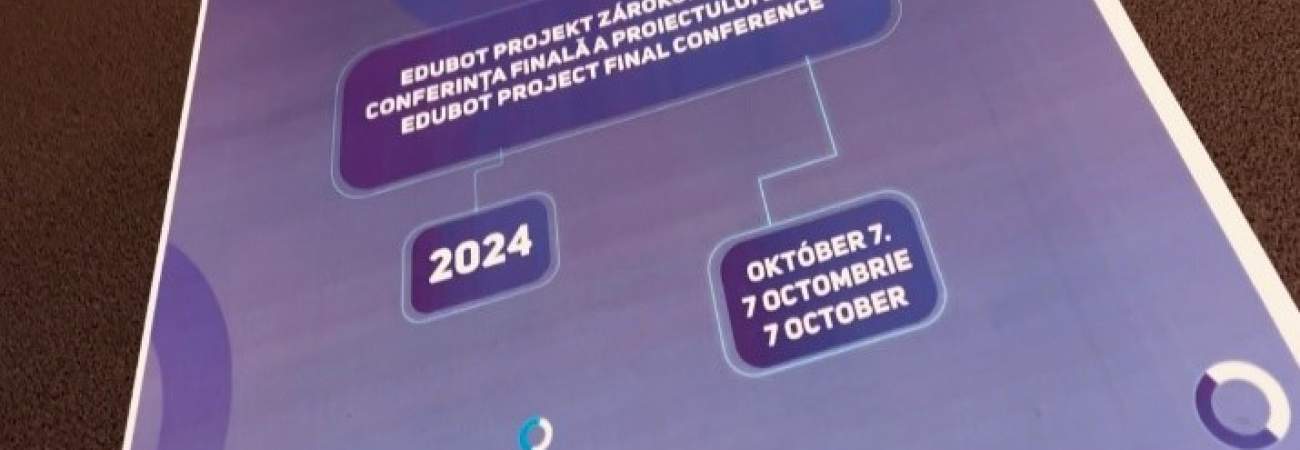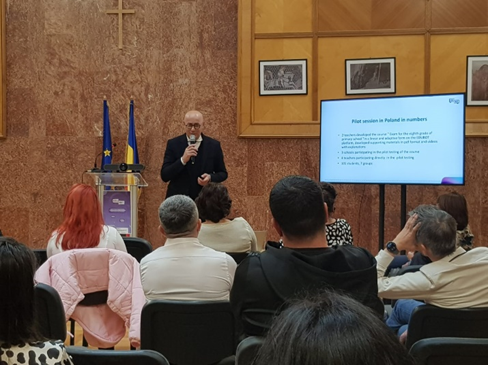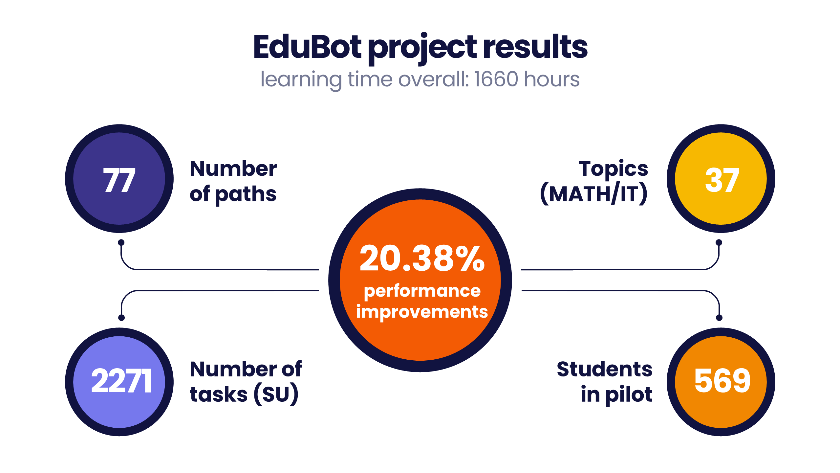
The final conference of the EDUBOT project took place in Miercurea Ciuc, on 7 October 2024, organised by the Harghita County Council, with the participation of the project partners, teachers and educational experts. The aim of the conference was to summarize and present the results and experiences of the project, which can help teachers in digital education and support differentiated learning.
The conference featured a number of presentations from Polish, Slovak, Romanian, Hungarian partners and teachers involved in the programme, covering different areas of the project.
Highlights included the presentation of experiences from the pilot sessions, the development of multimedia content such as simple methods for video creation and editing, and the role of differentiated instruction and gamification, i.e. AI-driven adaptive learning pathways and framework gaming. In addition, we presented our tested methods for student group formation and small group mentoring, as well as the potential applications of AI in education.

Pilot experiences and concrete results per country
A total of 569 students from four countries participated in the pilot training program. The students worked through a digital curriculum comprising 3,403 individual tasks covering 28 mathematics and 9 IT topics, amounting to 1,659.5 hours of learning.
In Hungary, under the coordination of the Interregio Forum Association, 4 teachers worked with 58 students in two schools, achieving a 27.78% improvement in performance based on input and output assessments. The students practiced 12 mathematics topics in linear and adaptive pathways, which include a total of 1520 learning elements (main tasks, support questions, text and video explanations).
In Poland, the partner organization ADN Instytut engaged seven teachers to teach 101 students in three educational institutions, resulting in an 18.04% performance improvement. The 10 linear and adaptive mathematics exam preparation pathways comprised a total of 585 learning elements.
In Romania, under the guidance of the Regionet Foundation, five teachers worked with 149 students across three primary schools, achieving a final performance improvement of 15.33%. The students prepared for the 8th-grade competency assessment in mathematics using 5 linear and 6 adaptive pathways, totaling 548 learning elements.

In Slovakia, organized by Tandem n.o., four teachers provided IT training to 261 students in three educational institutions, achieving a 59% success rate. The linear and adaptive IT pathways included a total of 750 learning elements.
All the curricula and itineraries are available and free to use for any interested school or teacher. The summary of the project experience, the teaching methodology and the user manuals are available on the project website.
Blended learning methodology
The EDUBOT project's blended learning methodology is a teaching model that combines traditional face-to-face and online learning, while building on the benefits of artificial intelligence. The online elements allow students to work at their own pace, complete personalised tasks, access the material at any time and get help to overcome difficulties. This methodology is flexible, motivating and facilitates learning.
The EDUBOT methodology can be used effectively in many areas of education. Its aim is to support teachers in their teaching processes, allowing them to combine traditional and online learning. It may also be of interest to managers and developers of educational institutions who wish to promote innovation in educational systems.
Download link: https://drive.google.com/file/d/1UduUh8x_bGDn0suzcJtdMENO6vKVxGDa/view?usp=sharing